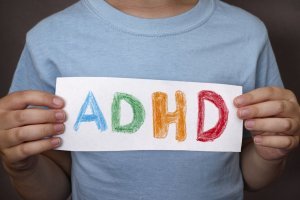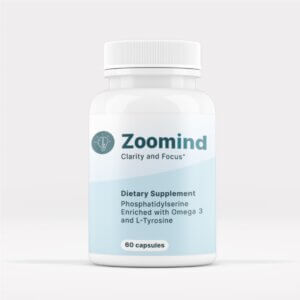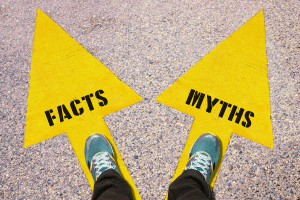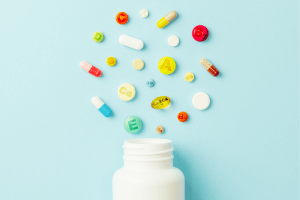Like most caring parents, I spend a great deal of time worrying whether my child is gaining any real benefits from medication that is being prescribed to treat ADHD. The answer I have been able to find so far is that you have to tailor your expectations to reality. There are no known cures for ADHD, and even by the most optimistic estimates, researchers have been able to report that only 60-70 per cent of people who are treated with the best current ADHD solutions gain a significant improvement in their symptoms. Even that comes at some cost in terms of side effects like long-term dependency and addiction.
It’s mainly because the symptoms of ADHD can’t be pinned down the same way that we can measure a child’s temperature to check whether there’s an infection that’s causing some visible distress. ADHD symptoms can vary widely between individuals, and even vary at different times in the same person. Additionally, the medications are not cures in the same way that a blood pressure medication will soon produce a measurable reduction in a reading on a BP monitor, or an antibiotic will stop a bacterial infection, quickly lowering the body’s temperature.

All treatments for ADHD that are recommended so far aim to reduce the symptoms and don’t address the causes. This article aims to give a clear picture of exactly what ADHD is, how it affects the people who suffer from it, and what benefits each of the different types of treatments are meant to deliver. After that, we will be able to offer some help in determining whether the medication that’s being taken currently taking is effective.
What is ADHD?
Attention-deficit/Hyperactivity Disorder (ADHD) is one of the most common neurodevelopmental conditions in children. It causes a range of disruptive and hyperactive behaviors. The symptoms most commonly become first noticeable in children around the age of six, just as they start school, although they may have been manifest at home before then. However, there is no clear boundary age at which the problems become noticeable. Overall, studies have shown that around 9% of children in Western societies will show symptoms of ADHD at some point in their early lives.
Even in the least severe instances, ADHD can result in a lack of discipline, weaker marks at school, poor social interactions, and other general behavioral problems. In severe cases, it can cause significant problems, even threatening a child’s safety.
Does ADHD only affect children?
Although the proportion of people whose symptoms of ADHD persist through into adulthood is small, there’s no doubt that adults can have clinical features very similar to childhood ADHD. Adults who are impulsive, inattentive, and restless have the same “look and feel” as children with ADHD. Many adults with ADHD suffer from antisocial, depressive, and anxiety disorders, along with histories of school failure, occupational problems. It is estimated that around 60% of children who exhibit the characteristics of ADHD will still have some degree of these behaviors all through their adult lives.
One of the distinct differences between the instances of ADHD in children and adults is that the strong bias of gender – in children, about three-quarters of reported cases are boys – is completely erased, and the incidence in men and woman is balanced.
What are the commonly prescribed medications for ADHD?

Although many years and billions of dollars have been spent trying to find a cure for ADHD, it is now generally accepted that all the drugs developed until now only control the symptoms to some degree. As we said at the beginning, no cure for ADHD has been discovered yet.
The most commonly prescribed drugs are stimulants, that act to increase the levels of some neurochemicals (dopamine and norepinephrine) in the brain to boost attention. The most common prescription stimulants include Concerta, Adderall, and Ritalin.
Others dampen hyperactivity by acting as antidepressants and sedatives. They contain serotonin reuptake inhibitors (SSRIs), which work to increase levels of serotonin in the brain. While ADHD is primarily associated with imbalances in dopamine and norepinephrine, serotonin also plays a role in ADHD, particularly in regulating mood, impulsivity, and decision-making. Some studies suggest that individuals with ADHD may have lower serotonin levels in their brains, which could contribute to symptoms like impulsivity, hyperactivity, and difficulty focusing. They are not as effective as stimulants for treating attentional and cognitive symptoms, but do work to reduce impulsive and hyperactive behavior.
What other forms of medication are effective for ADHD?
There is considerable evidence that increasing the levels of polyunsaturated fatty acids (PUFAs), specifically omega-3 fatty acids, can have beneficial effects for individuals living with ADHD. Research suggests that individuals with ADHD may have lower levels of these essential fats in their bodies, and supplementation could potentially improve symptoms.
PUFAs and ADHD:
Omega-3 PUFAs, particularly eicosapentaenoic acid (EPA) and docosahexaenoic acid (DHA), are crucial for brain development and function. Studies have shown that individuals with ADHD may have lower levels of these fats compared to those without the condition.
Potential benefits of DHA and EPA:
- N-3 PUFAs may help improve ADHD symptoms, including inattention, hyperactivity, and impulsivity
- Fatty acids are thought to play a role in neurotransmitter function, inflammation, and overall brain health, all of which may be relevant to ADHD.
Zoomind is a tailored source of both DHA and EPA, together with phosphatidylserine, and l-Tyrosine. Phosphatidylserine is a structural component of neurons that can help enhance communication. It is required to produce neurotransmitters such as dopamine, and dopamine deficiency is believed to be one of the primary triggers for ADHD. L-Tyrosine is a precursor to dopamine and some other neurotransmitters that are involved in the regulation of attention and mood and it is involved in learning and memory.
Omega-3 is not produced naturally in the body, but must be part of the dietary intake. The best sources of PUFAs are cold-water fish, such as salmon, sardines, and tuna. However, modern diets are generally lacking in sufficient amounts of these. It’s not easy, or cheap, to boost the natural levels of omega-3 in the daily diet, which is what makes supplementation a popular option.
Dietary supplementation with Zoomind is generally considered safe with minimal side effects, making it an attractive option for some individuals. However, it’s essential to consult with a healthcare professional before starting any new supplement regimen, especially for children with ADHD.
How well do ADHD medications work?
The causes and symptoms of ADHD differ in each individual, so it is not possible to give a general “grading” for the success of any of these medications. There’s no “one-size-fits-all” approach. Generally, doctors fine-tune the dosages for each patient, prescribing lower doses of stimulants at the beginning of treatment and gradually increase the dose until a noticeable improvement in the patient’s symptoms is observed. This typically takes a few months.
The success rate in getting at least some improvement is generally around 60 to 70 percent. Most importantly, there are some indications that long-term treatment with these drugs will result in some levels of tolerance, so that higher doses become necessary over time. Since ADHD can be a lifelong disorder, this can become a major factor in how effective any medication will be.
This is the primary answer to the question we started with. The regularly prescribed medications mostly do work, at least to some degree. However, they are not resolving the problem, and so the effects can vary every day, depending on numerous external factors. It’s advisable to keep monitoring whoever is taking drugs for ADHD constantly, to have regular consultations with a qualified healthcare provider, and to talk to your pharmacist about how well you think the medicines are working.
FAQ
What are the side effects of ADHD medication?
ADHD medications, especially stimulants, can cause:
-
Loss of appetite
-
Difficulty falling asleep
-
Irritability or mood changes
-
Headaches or upset stomach
-
Nervousness or restlessness
Non-stimulants may also cause fatigue or dizziness. Side effects usually get better over time or can be managed with changes to the dose or schedule. Doctors work closely with each person to find the best balance of benefits and risks.
What are the pros and cons of ADHD medication?
Pros:
-
Improves focus and attention
-
Reduces hyperactivity and impulsivity
-
Often improves school or work performance
-
Starts working quickly (especially stimulants)
Cons:
-
Can cause side effects like sleep or appetite problems
-
May not work for everyone
-
Needs careful dosing and monitoring
-
Some require multiple tries to find the right fit
For many people, the benefits outweigh the drawbacks, especially when combined with lifestyle support.
Are there any long-term side effects of ADHD medication?
Most research shows that ADHD medications are safe when used under medical supervision. Some concerns include:
-
Slower growth in children (usually temporary)
-
Possible effects on appetite and sleep
-
Rare risk of heart problems in those with heart conditions
Long-term use doesn’t lead to addiction when taken as prescribed. Doctors check in regularly to make sure the medication continues to be the right choice.
How do ADHD meds make you feel?
Many people say ADHD meds help them:
-
Stay more focused
-
Feel calmer or more in control
-
Get things done with less frustration
Some people may feel “flat” or overly quiet at first, especially on too high a dose. If the medication doesn’t feel right, doctors can adjust it. The goal is to feel more like oneself—not to change personality.








